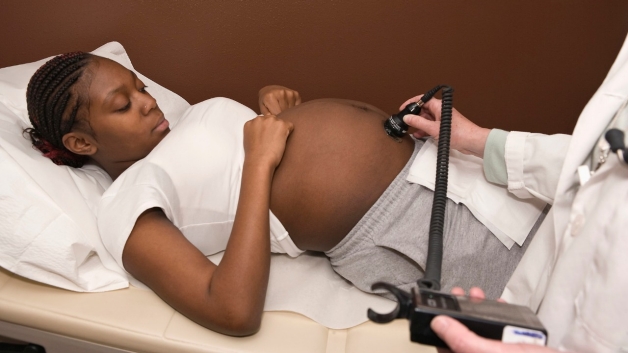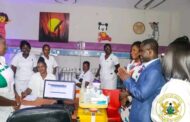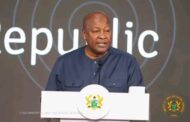The Eastern Regional Health Directorate has issued advisories to pregnant women in the Region over coronavirus.
According to the Health Directorate, pregnant women are also at risk of contracting COVID-19, therefore, the need to follow spelled out guidelines either tested negative or positive.
Below is a message on COVID-19 & Pregnant Women issues by the E/R Health Directorate.
Pregnant women are also at risk of contracting coronavirus infection. It is therefore important to take good care of your health.
Pregnant women should continue to attend the antenatal clinic to stay healthy and deliver safely.
Follow your health provider’s instructions, dietary advice and take all medications as prescribed.
Look out for danger signs in pregnancy such as bleeding, swollen feet, severe headaches, abdominal pain and report promptly to your health provider
All pregnant women should regularly wash their hands with soap under running water or use alcohol-based hand rub.
Use a tissue when you cough or sneeze. Discard the tissue into a bin and wash hands with soap under running water
All pregnant women should avoid contact with persons who are coughing or sneezing or have a fever.
Pregnant women should avoid handshakes, hugs or large and small gatherings in public spaces such as the markets, lorry stations, restaurants, churches or beaches where COVID-19 can spread easily to prevent possible infection.
COVID-19 is real, stay home and do not allow visitors to your home to avoid getting infected
If you are pregnant and you have a fever, cough or difficulty in breathing, call the emergency line 112 or 311 to be attended to Pregnant women with confirmed COVID-19 will continue to receive antenatal care and COVID 19 treatment.
It is important to provide accurate and complete information about places you or your family members have visited.
If you have COVID 19, wear a face mask to cover your nose and mouth to prevent the spread of the disease
Immediately dispose of the used mask into a covered bin and wash hands with soap under running water.
COVID-19 & AFTER BIRTH
Start breastfeeding within 30 minutes after birth whether you are confirmed with COVID-19 or not.
Always cover your baby well to keep him/her warm
Give your child only breast milk from birth to 6 months; it is enough for all their growth and health needs. It boosts their immunity to fight infections.
Breastfeeding protects your child from infections like pneumonia and diarrhea. It also protects them from diseases such as diabetes, hypertension and heart disease in later life
Breastfeed safely, if you have COVID 19, wear a mask while breastfeeding or taking care of your baby to protect him/her from being infected.
Cover your mouth and nose with a tissue or bent elbow when you cough or sneeze.
Wash your hands with soap under running water regularly and before or after handling your baby
Regularly clean and disinfect surfaces you touch to prevent infecting yourself or your baby
Stay at home and do not allow visitors to your home to avoid being infected with COVID 19
Avoid close contact with anyone who has a cold or flu.
Apply NOTHING EXCEPT CHLORHEXIDINE to the baby’s cord until it falls off and the wound is healed.
Do not force the cord to fall off before its time. It is VERY DANGEROUS
Agree with your midwife/doctor about arrangements for postnatal care
If you or your child is unwell, call the Ghana Health Service emergency number 112 or 311 to be attended to.
DO NOT REPORT DIRECTLY TO THE HEALTH FACILITY.
At birth, your child should be given two vaccines, BCG and polio
Complete your child’s immunization before the child is two (2) years old. Vaccines protect children from diseases that could kill or disable them.
From six months of age, continue breastfeeding. Also feed your child with a variety of foods, including fruits, vegetables and protein sources such as egg, meat, and pulses, in addition to rice and tubers.
Avoid unhealthy foods and snacks for your children, such as sweets, sugary drinks, and fast foods.
Your Maternal and Child Health Record book has lots of information on caring for the pregnant woman’s needs and that of her child. Use it always.
Source: Mybrytfmonline/Obed Ansah




















































